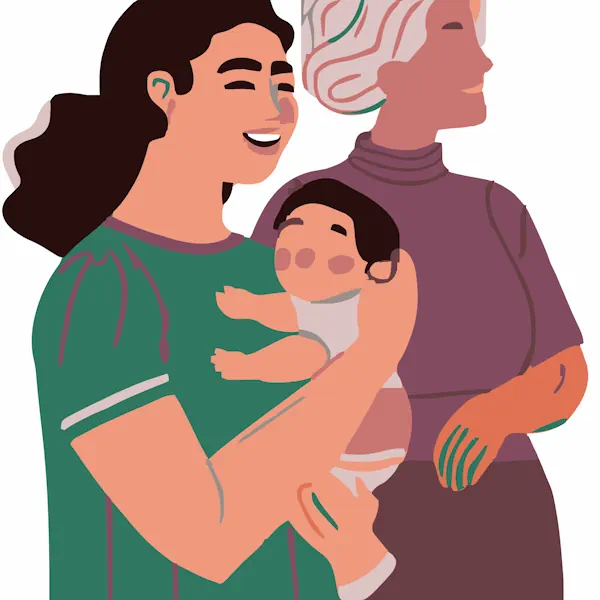In Australia, life insurance is often viewed as a safety net for our loved ones, providing financial security when we pass. However, are you aware there are ways to claim life insurance while still alive? And that you can borrow against your life insurance in Australia.
Many people are unaware of the benefits they can unlock from their life insurance policies during their lifetime. This guide discusses the different kinds of life insurance that pay benefits while you live, whether you’re looking to:
• Borrow money from your life insurance policy (by contacting your insurance provider)
• Supplement your retirement income
• Cover unexpected medical expenses
• Reduce debt
• Or fund your child’s education.
So, keep your insurance benefits active – discover how they can enhance your financial well-being today.

About Life Insurance
Life insurance involves a contract between a person and an insurance provider. The policyholder pays regular premiums in exchange for a lump sum payment, known as a death benefit, paid to their designated beneficiaries when they pass. In Australia, life insurance companies provide these policies and set premium rates based on various factors, including life expectancy.
While the primary purpose of life cover is to provide financial protection to loved ones after death, it also offers several benefits while the policyholder is living.
This financial security helps ensure that family and dependents are cared for in the event of the policyholder’s demise. However, you can claim life insurance benefits while still alive. This means accessing additional benefits, like living benefit riders, which cover medical expenses and other terminal or critical illness costs.
Not sure if you claim? Aussie Injury Lawyers will advise you on your eligibility for free. Call Now: 1300 873 252. All our legal services are 100% no win, no fee, which means you pay when you win and zero if you lose.
Why Have Life Insurance?
A thorough financial plan must include life insurance because it assures your loved ones that they will be financially secure in the event of your untimely passing. In this case, a successful death benefit payout helps cover funeral expenses, outstanding debts, and mortgage payments and provides income replacement for your loved ones.
However, your insurance policy can also be used for financial needs during your lifetime, offering a valuable financial tool.

Types of Life Insurance Policies
Term life insurance and permanent policies are the two main types of life insurance policies.
- A term life insurance policy covers a specific time, usually 10, 20, or 30 years. Term life insurance policies are an excellent option for people who need to support young children or who, like many Aussies, have a mortgage.
- A permanent life policy offers lifelong coverage and includes an investment element known as cash value.
Permanent Life Insurance
There are two main kinds of permanent insurance:
Whole Life Insurance Policy
Whole life insurance policies provide a guaranteed death benefit and a fixed premium. A whole life insurance policy also includes key features such as:
• Cash value accumulation
• Lifetime coverage
• And a savings component
However, its availability and popularity have gradually declined compared to other forms of life insurance. Whole life insurance premiums are initially higher than term life premiums. However, they don’t change for the life of the policy.
Universal Life Insurance Policy
Universal life insurance policies (also called adjustable life insurance) offer long-term financial benefits with more flexibility in premium payments and death benefit amounts. Benefits such as cash value accumulation and investment options. They differ from term insurance by providing permanence and the ability to borrow against the policy.
Understanding the different kinds of life insurance policies is essential in successfully claiming life insurance benefits while still living. By selecting the correct type of policy, people can provide their loved ones with the necessary financial security and protection.

4 Ways to Claim A Life Insurance Payout While Still Alive
Depending on your type of insurance policy, you can unlock several benefits while you’re still alive. Here are four ways to make the most of your policy.
1. Claim a Cash Benefit
One of the primary advantages of permanent life insurance is the cash value component. As you pay life insurance premiums, a portion of the premium goes towards building cash value, which grows on a tax-deferred basis. Consequently, you can claim a cash benefit while living with either a policy loan or withdrawal.
Be aware that when withdrawing cash for a life insurance policy, the cash value is minus surrender fees, and you will likely pay taxes as well. (Contact your insurance provider for more information)
2. Surrender Your Life Policy
If your life policy has a cash component, you can surrender it and remove all the cash value current balance. To achieve this, you must:
- Have a life insurance cash value component.
- Have enough value to the policy that you can now withdraw cash.
If true, you could claim your life insurance while still alive. Otherwise, it would help if you waited until there was a sum worth withdrawing.
3. Make a Policy Loan
Another option to surrender your policy is to borrow against the cash value. Choosing this alternative will mean the life insurance company will deduct the owed amount (including interest and principal) from your beneficiaries’ death benefit payout.
Nevertheless, life insurance loans are better than personal loans because they are simpler to access and have better repayment conditions.
A life insurance loan offers advantages over traditional bank loans, such as:
- Easy access to cash
- Low-cost financing
- No impact on credit scores
- And tax-free status.
4. Lodge A Critical Illness Claim
Additionally, some permanent life insurance policies offer living benefits, which allow you to access some of the death benefits when you are diagnosed with a qualifying critical illness or become terminally ill.
The living benefits provided by major illness insurance provide financial support during challenging times, paying medical expenses, providing ongoing care, or even allowing you to make the most of your remaining time with loved ones.
More about critical illness claims >

Other Types of Living Life Insurance Claims
If you have one of the below policies, which many Australians do through their superannuation provider, you can make a living life insurance claim.
Total and Permanent Disability cover provides a financial safety net when you can’t work anymore due to an illness or injury. When successful, you receive a once-off lump sum payment.
Please know that each insurance company and TPD policy has its unique definition of what constitutes a permanent disability. However, many physical and psychological medical conditions often qualify for a benefit payout.
Trauma Insurance Claim
Like TPD insurance, trauma cover pays a lump sum benefit while living. This type of policy is also known as major illness or critical illness insurance.
If you have a trauma policy, you will receive a lump sum settlement when diagnosed with a serious or major illness listed in your terms and conditions. Some common ailments include:
- Heart attack
- Stroke
- Cancer and Tumours
- Severe accident injuries
- Multiple Sclerosis, dementia, paralysis and many more
Income Protection Insurance
Income protection cover is another insurance product that pays benefits while alive. As with TPD insurance, it is related to your capacity to work and earn an income. But instead of a once-off payment, when approved, you receive a recurring benefit for a maximum period.
Income protection plans cover temporary medical issues that prevent you from working. Once approved, it pays a percentage of your regular pre-tax salary, usually 70%, for a defined period.

How to Maximise the Value of Your Life Insurance Policy
Understanding all the possibilities and techniques available is crucial to maximising your life insurance value while you are still alive.
Policy Riders
One way to increase the value of your policy is by exploring policy riders. Riders are extra features added to your life insurance cover to tailor its coverage to suit your needs better. Some add-ons include disability income riders, long-term care and accelerated death benefit riders.
Using Riders and Additional Benefits
Some life insurance products offer additional benefits that can enhance the value and flexibility of coverage, as well as policy riders.
Accidental death benefit rider: pays an extra benefit when the policyholder dies in an accident.
Return of premium rider: refunds a portion or all of the premiums paid when the policyholder outlives the term.
Dividend payments: some permanent life policies offer the option to participate in the insurance company’s investment gains through dividends. You can use these payments to increase the policy’s cash value, purchase additional coverage, or reduce premiums.
Financial Planning with Life Cover
Life insurance may significantly benefit your whole financial plan. It can act as a tax-efficient investment vehicle, supplement your retirement income, and safeguard your loved ones. When considering how to include life insurance in your financial plan, it’s essential to think about your future goals and objectives.
If you want to supplement your retirement income, permanent policies with a cash value element can provide tax-efficient income during your retirement years. By using the cash value through policy loans or withdrawals, you can supplement your other sources of income while maintaining the death benefit for your beneficiaries.
Tips for Choosing the Right Life Insurance Policy
Choosing the right life policy is crucial to successfully claiming life insurance while still alive. Here are four top tips for choosing a suitable policy:
Evaluate your financial goals
Determine your financial objectives and how life cover can help you achieve them. Whether you want to provide financial protection for your loved ones or create a source of income during retirement, knowing your goals will assist you in selecting the right type and amount of coverage.
Assess your budget
Consider your financial capabilities and determine how much you can spend on insurance premiums. Aim to balance your required coverage with what you can comfortably afford.
Understand the policy features:
Familiarise yourself with the various features and options available for different types of life insurance policies. Consider the cash value component, the availability of riders and additional benefits, and the flexibility of premium payments.
Seek professional advice
Consult with a financial advisor or insurance professional who can offer tailored guidance. They can help you understand the intricacies of different policies and help you make an informed decision.
Factors to Consider When Choosing a Life Policy
Several considerations can greatly impact your coverage and financial protection when choosing a life policy. These factors include:
- the kind of life insurance policy
- the amount of coverage needed
- the premium payments
- the policy’s cash value
- any additional riders or benefits that may be available.
It is crucial to carefully assess your needs and circumstances to determine which policy and features best align with your goals. Considering these factors helps you make an informed decision and ensure you have the right life insurance coverage to provide for your loved ones and protect your financial future.
How a Lawyer Helps Claim Life Insurance While Still Alive
When claiming life insurance, having a skilled solicitor can be extremely helpful. An experienced insurance litigation lawyer helps you understand the policy terms and reviews any paperwork related to the claim. They can also advise you on safeguarding your interests and your best legal options.
Insurance companies may only sometimes have your best interests as their primary goal. Paying out your benefits impacts their profits, and they typically look for any reason to deny or minimise your entitlements. In this case, Aussie Injury Lawyers helps on a 100% no-win no, fee basis. Furthermore, knowing where you stand is free – Call Now 1300 873 252.

Cash Out Life Insurance While Living FAQS
Can you borrow against life insurance in Australia?
Yes, you can borrow money from your life insurance when there is enough cash value to withdraw the funds you need. A policy loan is often preferable to other payment methods, such as a personal loan or a credit card. However, be aware that this option will:
• Reduce the death benefit that your beneficiaries will receive.
• Can have income tax implications
(You can borrow against life insurance by contacting your insurance provider)
Can I claim an early life insurance payout for a terminal Illness?
You could claim life insurance benefits when you have a terminal illness diagnosis with 12 months of life remaining. The good news is, you don’t have to pay it back when you live longer than 12 months. Accessing a death benefit early can help improve your financial situation at a challenging time.
Do you have to pay taxes when cashing out a life insurance policy?
If you claim a policy’s cash value or surrender a life policy, you will likely have to pay income taxes on the variation between the cash surrender value and the amount you paid in premiums. There will probably also be a surrender fee deducted from your payout.





